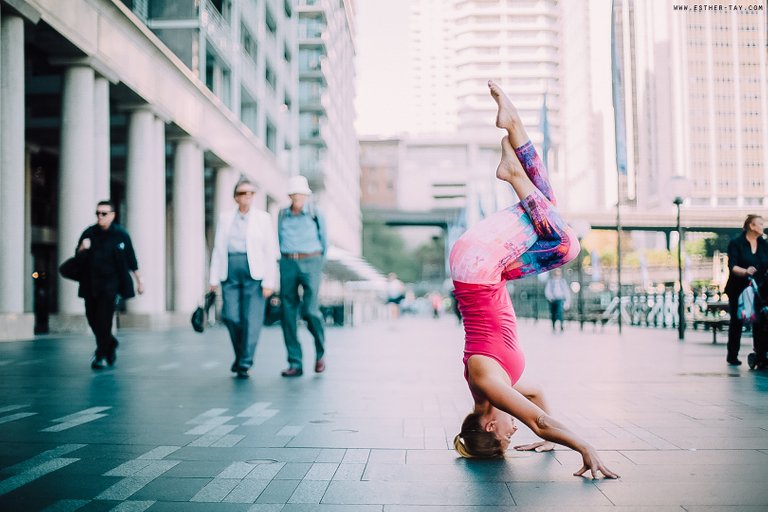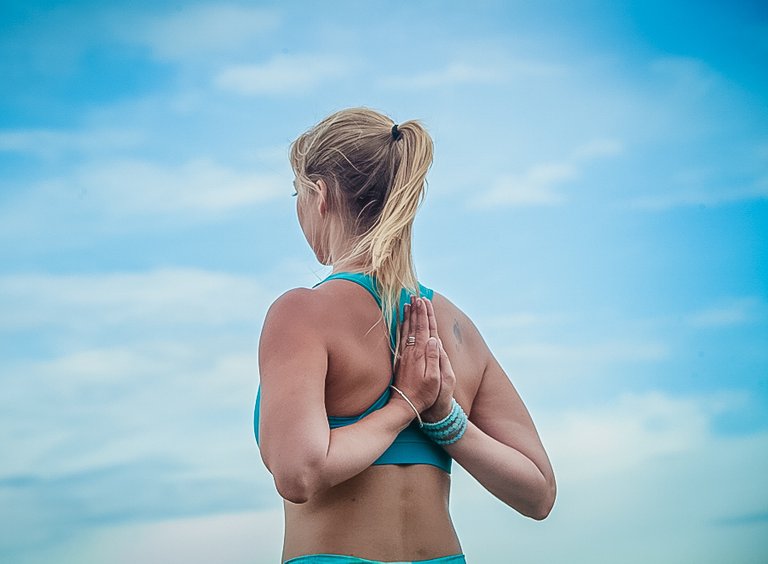Why do we practice asana, really? What’s the point in contorting our bodies into peculiar shapes on a regular basis?
There are lots of answers, and from my perspective, they’re all valid. Any reason for practicing yoga is a good reason.
I started yoga – like many people – purely because of the physical benefits I’d heard so much about. I was 19 years old, and had been a gymnast in my childhood and early teens. I missed moving and stretching and feeling confident of my body’s capabilities.
I didn’t miss competition, aggressive coaches, or the pressure to always be top of my game, no matter what sort of day I was having.
Yoga sounded like it would fit the bill: offering a good stretch, a physical challenge, and no competition. I started attending Iyengar classes and was hooked immediately, floating out of each class like I was walking on air. Within a couple of weeks I was attending six to eight classes per week, and within six months, I was apprenticing with my teacher, already dreaming of leading my own classes.

Since then, my practice has evolved in so many ways. I discovered vinyasa yoga, and relished the freedom of movement and flow (though I still like to return to my Iyengar roots from time to time). I’ve attended further teacher training courses in Australia, Bali and India. I’ve spent countless hours on my mat, exploring my body’s limitations.
The ‘why’ I practice has also evolved over the years, and I’m sure it will continue to do so.
It didn’t take long before I realised the benefits of yoga extended way beyond the physical. If I missed practice for a couple of days, my body would be fine – but my mind would be scattered; my stress levels would rise; and I’d become a far less pleasant person to be around.
I became aware that yoga was doing amazing things for my mental health and my overall wellbeing. A uni student at the time, yoga helped keep me calm and grounded while I completed my undergrad degree and masters.
Now, after 18 years of practice, I see asana not just as a way of reducing anxiety and managing stress, but also a tool to better understand myself. As BKS Iyengar said, “Yoga is a mirror to look at ourselves from within.”
The self I am on my yoga mat is the same self I am in the rest of my life. I’m subject to changing emotions – I feel frustration, anger, jealousy and also joy and contentment. At times I’m a slave to ego, and at other times I’m my own harshest critic.
Practicing asana is an opportunity to take a step back from those emotions; to give myself the perspective to recognise what’s coming up for me, and why. It’s given me the ability to detach from emotions – not denying their existence, but recognising that they don’t define me, and that in fact, they’re simply energy passing through me.
When I step onto my yoga mat, I’m inviting discomfort into my life in a controlled environment. Each time I attend a yoga class, I know that I’ll love some parts of the class, and struggle during others. I might have moments during which I compare myself to yogis on either side of me and find myself lacking, and moments when I compare myself to other yogis and judge myself the victor (hello, ego!)
I might have moments during which I feel cranky with the teacher, or cranky with myself. Or most often, cranky with the teacher immediately followed by cranky with myself for having been cranky with the teacher. Sigh…

But really, these moments are the most valuable to me. These are the moments when I can learn a little more about my own insecurities, anxieties and fears. And learning about them is the best thing I can do to get them under control. Don’t get me wrong; I’ll never be entirely free from insecurity or anxiety. But I’m not governed by them.
Learning how to recognise my emotions and take a step back while I’m on the yoga mat has taught me how to recognise emotions and take a step back in the rest of my life.
Becoming present, aware, non-judgemental, and compassionate while on my yoga mat has been the first step to becoming all of those things off the mat. Finding a sense of contentment regardless of how my handstand compares to anyone else’s has led me to find a sense of contentment regardless of how my house, or my hair, or my nose compare to anyone else’s.
To say that yoga has led me to become a healthier, happier, more well-adjusted version of me is no exaggeration at all. And the best part is, this still feels like just the beginning.
Agreed, being present is Heaven.